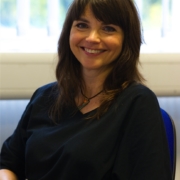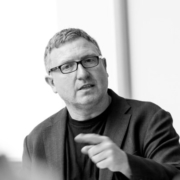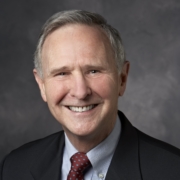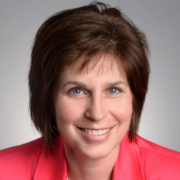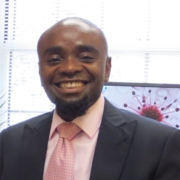The Global Partnership for Education is a powerful multi-stakeholder organization in educational development. It funnels millions of dollars to develop education systems in dozens of low-income countries. Yet the board of directors of the organization strategically avoids some of the most important and controversial topics in education today.
My guest today, Francine Menashy, has researched the Global Partnership for Education and the ways in which its board of directors avoids the topic of low-fee private schools, which is a heavily debated idea in both education policy and research.
Francine Menashy is an Assistant Professor in the Department of Leadership in Education at the University of Massachusetts Boston. She researches aid to education and non-state sector engagement, including the policies of international organizations, companies, and philanthropies.
Her research discussed in today’s show was funded through a fellowship with the National Academy of Education and the Spencer Foundation.
Citation:Menashy, Francine, interview with Will Brehm, FreshEd, 33, podcast audio, July 21, 2016. https://www.freshedpodcast.com/francinemenashy/
Transcript, translation, and resources:
Will Brehm: 1:18
Francine Menashy, welcome to FreshEd.
Francine Menashy: 1:22
Hi, thanks for having me on.
Will Brehm: 1:24
You have a working paper on Tiptoeing Around Private Schools in the Global Partnership for Education. And it’s for the National Center for the Study of Privatization in Education at Teachers College, Columbia University. You write that educational development has experienced two major trends of late: the rise of international partnerships and the rise of private schooling. Can you explain these trends in a little bit more detail?
Francine Menashy: 1:57
Sure. So one trend, the one I’ll talk about first is the one that most people who work in education and development know about very well, and that’s a very rapid growth in private schooling throughout the global south. And this can be seen in a few different forms through an increase in public private partnerships, or PPPs, and that’s like vouchers and charters or subsidies. But I think what’s been more controversial has been a really remarkable rise in low cost private schools. And this trend, this rise in private schooling, as I’m sure you know, is a very contentious issue.
The second trend is this increase in transnational coordination where very diverse groups of organizations from the state and the non-state sectors are collaborating in educational financing and policy design. And this can be seen in the establishment of what’s been called multi stakeholder partnerships. And these are collaborative organizations. They bring together a range of stakeholders, and they try to tackle single-issue areas like disease, environment, water, that sort of thing. And, for instance, you’ve probably heard of the Global Fund to Fight Aids, TB and Malaria. It’s probably the best known multi-stakeholder partnership. So we’re seeing a lot more collective and collaborative action on global issues, including education. So my research is really looking at these two big trends: privatization on the one hand, and transnational coordination on the other and how they they interconnect.
Will Brehm: 3:41
Why is low cost private schooling so contentious?
Francine Menashy: 3:47
Well, because I think primarily because it’s fee based. These are schools that have cropped up the really mushrooming throughout the global south, and they’re rising in response to what some would argue it failed public systems of education, somewhat argue that. And they charge very nominal fees, and they’re said to target low income families, poor families who are dissatisfied with the public systems. So they’re very contentious, because critics argue that they create an additional tier of schooling that exacerbates inequities.
Will Brehm: 4:30
And your work putting the two together: the private schooling and the multi stakeholder partnerships are the international partnerships comes together in education in the case of the Global Partnership for Education. What is the Global Partnership for Education?
Francine Menashy: 4:49
So the Global Partnership for education or the GPE, it’s the largest multi stakeholder partnership working in education, just to give you a bit of history, was initially launched back in the early 2000s by the World Bank, and it was then called the Education for All Fast Track Initiative or the FTI. Then in the late 2000s, 2010, 2011, after it came under quite a bit of criticism, the FTI was restructured and it was rebranded into what we know now is the Global Partnership for Education. So it’s a partnership of a range of actors from the state and the non-state sector. And what it does mainly is it pools funds and then provides it to low income countries, recipient countries to support their K to 12 education systems.
Will Brehm: 5:41
So can you tell us some of the actors like who are the funders and then who are the recipients?
Francine Menashy: 5:46
Sure. So I’ll start with the recipient countries must be low-income countries, and there’s over 60 of them now, and they’re essentially countries that show that they don’t have adequate funding to support their education systems, but they have the ability to design a satisfactory education sector plan. And the donors are rich countries, bilateral donors. There’s a range of them, the UK, Canada, Japan, the US, OECD countries.
Will Brehm: 6:23
Are there any philanthropic organizations?
Francine Menashy: 6:25
There are, there’s a separate seat on the constituency for the private sector and private foundations. However, the foundations in the private sector haven’t really become big funders to the GPE, I think that their last replenishment to private foundations gave some funding to the GPE, but it was relatively small, it’s primarily the donors.
Will Brehm: 6:53
So why do they have, why do the private sector and the philanthropic organizations have seats within the GPE if they’re not funding like the donor countries?
Francine Menashy: 7:03
So that’s an interesting question. I’ve done some research in that area. And it depends on who you ask. So from the GPE standpoint, from the Secretariat standpoint, it seems as though they were really invited into the GPE with this intention and a hope that they would become funders.
In some ways the GPE was trying to emulate health sector, multi stakeholder partnerships like the Global Fund, which received fairly large contributions from the private sector. But if you ask the private sector or the private foundations, they’re there because they want a seat at the table. They want to influence policy, they want to help in the design of solutions to educational problems. So it really depends on who you ask, what the private sector is doing there.
Will Brehm: 7:59
And what about the World Bank and the UN agencies, are they involved in the Global Partnership for Education?
Francine Menashy: 8:06
They are. There is a constituency for multi-laterals, so UN agencies are on there, UNICEF, UNESCO and the World Bank.
The World Bank has a very interesting history with the Global Partnership for Education and the Fast Track Initiative as well. As I mentioned, the Fast Track Initiative actually started as a fund within the World Bank. And it’s kind of continued to have a very close relationship with the bank. The Secretariat is housed within the World Bank headquarters. The employees of the Secretariat are employees of the World Bank. The World Bank manages the funds of the majority of the GPE recipient countries. In country it’s a role that’s called the supervising entity. So although the World Bank is not a funder to the GPE, and they have a very, very close relationship to it.
Will Brehm: 9:08
So the actual location where the Global Partnership for Education is located is inside the Washington DC office of the World Bank?
Francine Menashy: 9:19
Yes, I think it’s just up the street.
Will Brehm: 9:21
Just up the street. So in DC.
Francine Menashy: 9:24
Its host, so the term is it’s hosted by the World Bank.
Will Brehm: 9:28
Right. And the World Bank doesn’t provide any funding to the GPE?
Francine Menashy: 9:32
It doesn’t provide funding to that pooled Fund, the GPE Fund, which then gets dispersed to the recipient countries.
Will Brehm: 9:41
But then inside the recipient country, the World Bank is typically the supervising entity of how that money is dispersed?
Francine Menashy: 9:49
Yes, typically, I think in 70% of the cases it’s the World Bank, so they manage and they disperse the funds. In the other 30% of the cases we’ve seen that UNICEF is in most of those cases, I think, differed in a couple of other cases as well.
Will Brehm: 10:09
It seems like this would give the World Bank outside influence or, you know, it’s much more influence in the way education and development takes place, than other countries and other agencies?
Francine Menashy: 10:24
You could certainly argue that and in fact, when I spoke with some of the in-country actors and asked them about the role of the World Bank within the GPE recipient countries, I was told that the bank has that outside influence, and it’s trying to drive its own agenda in certain country contexts. I obviously didn’t talk to everyone, but in some areas.
Will Brehm: 10:52
And what would be on that agenda? What would the bank be pushing?
Francine Menashy: 11:01
Well, it’s really difficult to say one issue and the issue that I asked the most questions about, because it was the nature of my research was around this issue of private schooling. And I’m not going to say that the World Bank is driving an agenda around private schooling. But I did hear that even some of the bilateral donors that have a presence of the country level have more influence over the recipient countries education policies than they would have us know.
Will Brehm: 11:37
So let’s talk a little bit about how private education and low fee private schooling which you said earlier was contentious. How does this fit into the GPE?
Francine Menashy: 11:49
Well, so I could talk a little bit historically of how the Fast Track Initiative dealt with private schooling. So back when it was the Fast Track Initiative, there was a recommendation that 10% of school enrollments should be to private schools. This was in some framework paper that they developed back in, I think it was like 2003, 2004.
And from my interviews with staff members who were there at the time, this apparently generated a lot of controversy within the Fast Track Initiative. So I was told that this 10% figure was driven by just a few World Bank economists. And then the Fast Track Initiative came under all this criticism, and then it was restructured and it came to include this large constituency base board. And this 10% benchmark around private education was dropped, and now there’s no firm policy within the GPE on this particular issue of private education.
Will Brehm: 12:50
Was there ever a reason given why 10% was the number of private schools or, you know, private enrollment?
Francine Menashy: 13:00
I asked and those I spoke with said that it was almost arbitrary.
It was almost as though they looked at countries where they had optimal, you know, high quality public systems of education and saw that they might have around 10%.
I didn’t get a clear answer on that. And I don’t think that there is a clear answer,
Will Brehm:13:23
And you said that when it was restructured, there was the board of directors changed. Can you give us a little sense of how the GPE is structured internally, like who is on the board of directors?
Francine Menashy: 13:40
Sure. So the board of the GPE is really diverse. So it’s what’s called a constituency based board. So it includes 19 voting members, and each of them represents a different constituency. So these include the donor countries, I talked about that, recipient countries. So they have representatives of those 60 countries, multilateral agencies, like UNESCO, and the World Bank, civil society organizations, and they have three seats for civil society they have for the global north and the global south. And then there’s a seat for the private sector and the private foundations, and that includes Pearson Education, Microsoft, the Hewlett Foundation. And so there’s a couple of board meetings per year. And there’s actually a board meeting happening right now, just coincidentally, and they decide on various things, GPE processes and policies, they discuss future directions, they approve grant applications, that sort of thing.
Will Brehm: 14:44
So are they actively involved in the everyday practice of what the GPE does?
Francine Menashy: 14:54
The board members?
Will Brehm:
Yeah, the board members.
Francine Menashy:
So the Secretariat is what deals with the day to day and the implementation and (they have a) secretariat actually become quite large and active. The board of directors, they only meet a few times of the year I’ve been told by people in the Secretariat that it’s a very active board for a board, it likes to know what’s happening and wants to be involved in certain processes or at least have a say, but on the day to day? No, I don’t think the board of directors is involved.
Will Brehm: 15:36
And how many people did you say were on the board?
Francine Menashy: 15:40
It has 19 voting members.
Will Brehm: 15:41
19 and when you say like, Pearson is involved, do you mean the CEO of Pearson Incorporated?
Francine Menashy: 15:48
No. It’s a representative for Pearson Education. But I believe Pearson is the representative for the private sector and foundations constituency. And or has been for the last few years.
Will Brehm: 16:02
Right. And do you know anything about the opinions these different board members have on private education?
Francine Menashy: 16:14
Well, yeah, I’ve done quite a bit of research on that. I’ve looked at the internal documents and the policy documents of the majority of the board members and I’ve talked to many of them in interviews just to get a handle on their views on private education.
Will Brehm: 16:35
And what are some of their views?
Francine Menashy: 16:38
Well, they range and I would say they’re quite polarized in fact I found they come from very very different ideological standpoints on this whole issue.
And I mean, that has to do in part with the fact that they come from very different organizations and different organizational cultures.
Will Brehm: 17:01
So like the Pearson’s Incorporated board member would be very much on for private schooling. Would that be accurate?
Francine Menashy: 17:11
I mean it’s kind of it’s very interesting, when you think about this board, you have, for example, you have a board member from Education International, which is the civil society organization that has as part of its mandate to support public education. I mean, it’s really explicitly anti privatization. And then sitting at the same board table is also a representative from Pearson, which is this huge for profit company. That’s, I mean, quite unabashedly supported low cost private schools. I was actually told one person I interviewed told me that Pearson is like the elephant in the room, like others are very suspicious of what Pearson is doing in the GPE. So I mean, the board members really come from very different organizations. And they come to the GPE with ideas around educational issues that have been constructed in our own organizational environments. And these ideas often really clash with one another.
Will Brehm: 18:10
So all of these different ideas that are within the board, these polarized opinions on private education is the Secretariat for instance, you know, enacting certain policies that reflect these ideas?
Francine Menashy: 18:29
So, in fact, these different opinions and these different viewpoints, I got out through the interviews and the policy documents, but not through the meeting documents. And that’s because the GPE board hasn’t really dealt with this issue of private education. There has been no formal board level dialogue conducted on this issue of private education.
Will Brehm: 18:56
Why do you think that is?
Francine Menashy: 18:59
Well, one of my respondents put it really, really well when he called it strategic avoidance. So this issue of private schooling is so polarizing and so divisive that to bring it up at a board meeting and try to come to some kind of consensus on it, could really destabilize the partnership. So I was told that as is the GPE actually rather fragile consensus. So to bring up an issue like private education is just a bad idea. So I was told that some of the board members would be so angry that the GPE’s even considering the possibility of supporting private schools that they’d get up and walk out and leave the partnership. So I think that debate is just simply avoided.
Will Brehm: 19:49
Wow. So I mean, this is like one of the most widely discussed phenomenon in education today, private education and its influence in public schooling. And yet, the partnership, this global partnership that controls millions of dollars, it’s not even being discussed at the board level.
Francine Menashy: 20:11
Hmm. Not informal spaces, unless they’re talking about it right now which would be really fascinating.
Will Brehm: 20:19
Right. It just strikes me as you know, I mean, this strategic avoidance. I guess I understand that, but I also I worry that the critical issues of our time aren’t being addressed by organizations that have huge amount of power and influence around the world.
Francine Menashy: 20:38
Yeah, and to be fair, I don’t think that this phenomenon is something that you only find in the Global Partnership for Education. I think that from my reading, many multi stakeholder partnerships face the same sorts of issues where policy like real conversations don’t happen within their partnerships, like this idea of having dialogue and debate. I think it’s really challenging to have it in an environment where everyone at the table comes from very different organizational cultures and very, very different mandates.
Will Brehm: 21:21
And they’re not necessarily elected either?
Francine Menashy: 21:24
Not necessarily, some of the constituencies have elected members to sit on the board.
Will Brehm: 21:33
Elected by whom?
Francine Menashy: 21:35
By members of their constituency, I think the civil society constituency, their board members are elected.
Will Brehm: 21:44
Right. But the Global Partnership for Education Board members are not.
Francine Menashy: 21:48
Not necessarily
Will Brehm: 21:49
Right. So they can’t really be held accountable for not talking about private education.
Francine Menashy: 21:57
No, I don’t think that they could be held accountable for things they don’t talk about.
Will Brehm: 22:06
And, you know, I guess we can shift gears a little bit now. And so look at the recipient countries of all this money that’s flowing from donor countries to recipient countries, through the Global Partnership for Education, what are recipient countries doing or not doing when it comes to private education?
Francine Menashy: 22:30
So I was curious about this and I did an analysis of the education sector plans of the full GPE portfolio at that time, it was 59 countries. So these sector plans, they’re part of the just explain they’re part of the GPE funding application, they’re essentially policy papers that the government’s design in country and from analyzing them, I found that roughly a third of the country governments state in their plans that they support private education. So either via PPPs or low cost private schools, or through, you know, a more general encouragement to, you know, enable a climate where the private education sector can grow. So a third of the country’s I evaluated as having some piece of their education policies as supportive of private schooling.
Will Brehm: 23:26
So in a sense, the Board of Directors isn’t necessarily talking about it.
Will Brehm: 23:31
The Secretariat doesn’t necessarily have this 10% provision, like the FTI did.
Francine Menashy: 23:39
Mm hmm. Yeah. And the Secretariat staff generally said that they don’t, it’s not what they plan to focus on, or not what they wish to focus on the majority of the Secretariat members that I spoke with.
Will Brehm: 23:50
So they don’t focus on private schooling, per se, or formally and then, but yet, many of the recipient countries put in there the documents that are guiding the development of their education system, they include this notion of private schooling as being part of the development of their education system. How are these ideas of private schooling entering the education sector plans?
Francine Menashy: 24:24
So it’s actually very hard to interpret these education sector plans, because on the one hand, they’re said to be country driven. So it’s very possible that the recipient countries truly see a lot of value in the growth of the private sector. And on the other hand, I was told and I touched on this earlier, I was told by some of the respondents that these plans and the education policies within the countries are actually driven in large part by international actors or development partners that have a strong presence at the country level. So for example, I was told specifically the World Bank, who as I mentioned, was a supervising entity in 70% of these countries and certain bilateral donors, they have a lot of input into these education policies. So supportive private schools may reflect the recipient country preferences, but it might also reflect international actor preferences, it’s very difficult to say.
Will Brehm: 25:29
Right, and the interplay between them, right. I mean the way these documents must be written these education support plans, must be the government officials are in, you know, working with or, you know, in collaboration with the development partners. And so how that document then gets created is probably a mix of both opinions.
Francine Menashy: 25:52
Yes and I got the impression that it’s very country dependent. In some countries, it seems as though the development partners are almost the authors of the education policies and in others, the governments have much more influence.
Will Brehm: 26:12
Is the goal of the funding of the Global Partnership for Education, in part to, in a sense, put itself out of business by developing these low income countries to be able to fund education to the level that they see fit, like, independently or self-sufficiently?
Francine Menashy: 26:36
Well, one would hope that that’s the end goal. One would hope that this would be temporary.
I think the Fast Track Initiative was initially established as a short term initiative, as a short term Trust Fund. But it’s been around for almost 15 years now I think. And so it would be a wonderful thing if recipient countries didn’t require aid. But it seems as though it will be around for a little while.
Will Brehm: 27:13
Over those 15 years, do you know if they have been fewer recipient countries?
Francine Menashy: 27:19
Now, there’s been more. It’s grown. And I should say, though, that the recipient country, the nature of the recipient countries has grown in part because they changed their funding mechanisms and their eligibility requirements. And now they’re increasing their funding to conflict affected and fragile states. And this is actually a really big success story on the part of the GPE because there was a time when it was the FTI where it would only lend or give money to good performers. So countries who had this education sector plan, but also showed that they were already starting to support their public systems of education, but that really disqualified all the fragile states but they changed their funding modalities and their eligibility requirements. And now this huge increase in countries is in large part due to their support of conflict affected and fragile states.
Will Brehm: 28:18
Right. So countries like Iraq and Syria?
Francine Menashy: 28:25
Well, Syria is not on there. And this is another issue around the funding is that it’s only to low income countries. And so the funding can’t go to any country classified as middle income.
Will Brehm: 28:41
And who does this classification?
Francine Menashy: 28:44
Well, it’s based on I think the income classification is based on the World Bank classifications around income level.
I think the GPE was designed to essentially put on a fast track countries that simply could not afford to support their own education systems. And they’re focusing on very poor recipient countries.
Will Brehm: 29:12
So returning to this lack of debate on the board level, within the Global Partnership for Education, what do you think?
What effects do you think this has on the Global Partnership for Education? Because presumably, they’re not, you know, it’s not only private education that they’re not discussing, there’s probably other topics that are being strategically avoided. So what sort of, you know, after doing all this research, what sort of consequences do you see? And what sort of changes would you envision going forward?
Francine Menashy: 29:52
Well, I mean, I’ll speak first, more specifically about the impact regarding this lack of debate on private education system. Specifically, I think that one of the biggest issues is something that we’ve discussed already is this influence of international actors like the World Bank, and the donors within the recipient countries. So if the GPE doesn’t have a well-established policy on private education, that results from real debate and real dialogue at the board level, I’d worry that the in-country decision making process could be just driven by international organizations that happened to be influential at the country level and have their own opinions on private schooling. So that’s one concern. Another around private education is that nearly everyone I interviewed even when I didn’t ask questions around this mentioned, and this is from both sides of the debate mentioned that there was a serious need for regulation of the private sector throughout the global south.
And I see this as an area that the GPE could make some real impact in designing some kind of regulatory framework or enforcing it. But this isn’t happening because the topic is just being avoided. So it seems like it’s a real lost opportunity. And finally, I think one of the biggest impacts that this could have, and this non debate culture or the avoidance of debate on any kind of policy issue could impact really the legitimacy of the partnership because it seems as though really important decisions aren’t being made. I did an analysis of the GPE board decisions since 2009, like the final board decisions that came out of meetings, they list them on their websites. And in my coding of them, I found that board decisions on education policy matters just in general are not made very frequently, there’s a lot of decision making on GPE governance, a ton of decision making done by the board of directors about the board of directors.
And they discussed funding mechanisms and a few other issues, but very, very few discussions happening on education policy recommendations. And I think it’s just simply because these conversations are really hard to have. And so they’re avoided. But as I said, this could risk the legitimacy of a partnership that’s supposed to be there as a forum for making collective consensus based decisions on very significant educational issues.
Will Brehm: 32:48
Well, Francine Menashy, thank you very much for joining Fresh Ed.
Francine Menashy: 32:52
Thank you for having me on.
Global Partnership for Education



